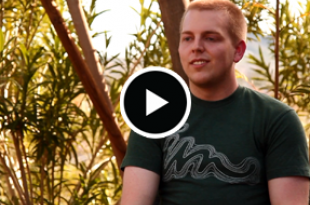Guidelines for Social Anxiety Therapy Groups
The Social Anxiety Association lists groups for no charge if they meet the following guidelines:
1. There is a proven leader for the group, preferably someone who has had social anxiety herself.
2. It is a social anxiety group only. We do not want to encourage one group for all the anxiety disorders as this has been proven not to work.
3. Cognitive (learning) and behavioral (doing) therapy is used. Please do not get stuck on semantics. Albert Ellis, Ph.D., used the terminology "rational-emotive behavioral therapy" and this is the same thing as CBT when it is put into practice. "Mindfulness" is another word that fits in with the cognitive therapy that must be done. Other theories that are the same thing in practice as cognitive-behavioral therapy include "Acceptance and Commitment Therapy (ACT)".
We use the term "cognitive-behavioral therapy" because it is more well-known. But when done correctly, cognitive-behavioral therapy includes the emphasis of these other theories and terminologies.
4. The group operates for several hours a week. Treatment for social anxiety disorder must be comprehensive and repetitive.
5. Outside the group behavioral activities are part of the program. The encouragement to group members to get together and USE the methods and strategies in real-life situations to overcome social anxiety.
6. Use of an active, structured, planned out program for social anxiety that's been proven to work. Right now, this is fairly limited to the "Overcoming Social Anxiety: Step by Step" series put out by the Social Anxiety Institute. Major changes are happening this year that you will be encouraged to take part in, and will help all members of the group in their journey of overcoming this awful anxiety disorder.
7. Your group has the option of following our basic outlines that accompany the "Overcoming Social Anxiety" audio series. They are currently on the internet and may be used. Keep in mind that this special "help" section for running groups will be updated and added to this year. Your comments and insights can be added to this guide that accompanies "Overcoming Social Anxiety". Also, those with registered copies of the audio series will get a new user name and password to access the newly-revised question and answer section that follows the audio series. This entire section (subdirectory) concerning the audio series is being re-done and expanded.
8. You do not use force or pressure to get people to do things. The leader should be motivating and encouraging, which allows the group members to feel comfortable, so they can voluntarily begin to do some basic behavioral activities in the group.
9. The emphasis of the group is in HOW TO overcome social anxiety. It should be rationally positive.
Pat yourself on the back for running a comprehensive therapy group for social anxiety. It is much harder to run this group than any other type of psychological group, but following the available guidelines, audio series, extra internet help provide enough structure for groups to be successful.
Try to allow people to repeat the group or run a second group. People cannot overcome social anxiety in the space of just one group. Encourage them to stay for as long as needed until they no longer meet the diagnostic criteria in the DSM for social anxiety disorder. That is what "overcoming" means.
You are deserving of great credit for running a group. The SAA will publicize it and your events, if at all possible.


